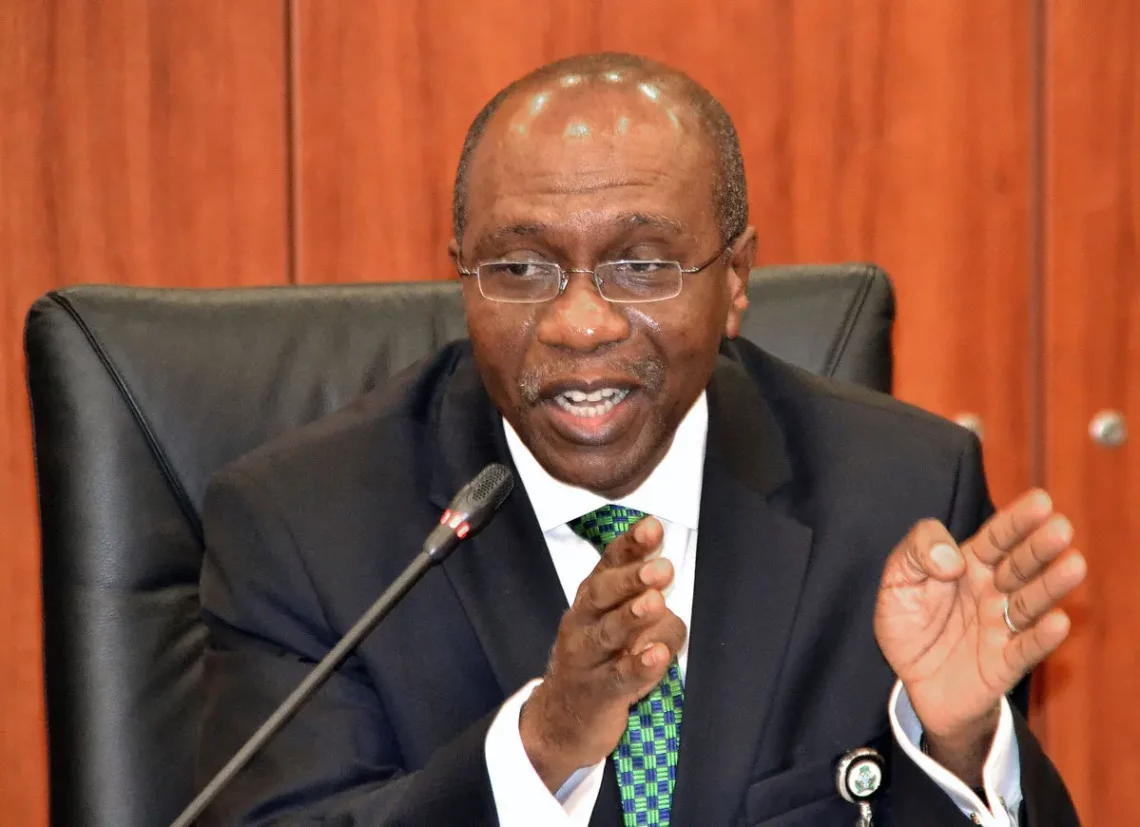Currency worldwide supposed to be a medium of exchange and at such, must be available for every person who wishes to use it for procurement of products and services.
However, when such ‘Medium Of Exchange’ is no longer available to circulate across those who need it, then, disaster is brewing.
When the Central Bank of Nigeria(CBN) announced the redesigning of the nation’s Naira of N200, N500 and N1,000 notes, as well as wanting to go cashless at the same time, it was expected to be an issue, judging from the fact that the deadline given was equally too short.
The CBN governor, Mr. Godwin Emefiele had, in October 2022, announced plan to redesign N200, N500 and N1,000 of which the initial deadline was 31st of January, 2023 before it was shifted to 10th of February, 2023 with a grace period of additional one week, that will elapse on the 17th of February, 2023.
However, in the last two weeks, it has been difficult for Nigerians to get the three redesigned notes(N200, N500 and N1000) for transaction even as the old notes equivalent were equally scarce.
People had to queue several hours at bank premises and Automated Teller Machines(ATM) to get cash that were rationalized between N5,000 and N10,000 per customer.
The Point of Sales(PoS) operators too were milking customers although they too were finding it difficult to get physical cash, so, had to hike rates to between N500 and N1,000 on every N5,000 Withdrawal.
Infuriariated by this development, banking customers decided to pick law into their hands by destroying bank properties, among other government and individual assets just as it was witnessed in Abeokuta, Ogun State last week.
Banks had to close some branches for fear of being attacked, all of which further mount pressure on the insurance companies that have insured all these assets.
Invariably, the insurance industry may be forced to cough out about N2billion as claims to compensate the insured parties involved in this scenario.
Genesis Of The Protest
Following outcries that there is no new notes in circulation and many are still stuck with the old notes, the Central Bank of Nigeria(CBN) had earlier extended the deadline for the depositing of the old N200, N500 and N1,000 till February 17, 2023.
The 17 day extension which was announced by the Governor of the CBN, Godwin Emefiele , followed the approval of President Muhammadu Buhari.
In a statement, the CBN governor said the decision was reached after briefing the President on the status of the currency redesign programme.
Noting that the CBN has been able to collect N2.7 trillion accounting for 75 per cent of the currency in circulation, since it commenced the programme in October last year, Emefiele said, the president had approved a 10-day extension of the deadline from January 31, 2023, to February 10, 2023 and a Seven day grace period from February 10 to February 17, 2023.
The naira crisis had sparked violent protests in parts of the country, starting from last weekend that continued into the current week as some bank branches were vandalised and properties including vehicles, Automated Teller Machines(ATMs), among others were vandalised.
While there were reported cases of the Sapon, Abeokuta, Ogun State branch of First Bank and Wema Bank branch in Ibadan, Oyo State, vandalised by irate mob protesting naira scarcity, there were other unreported cases of vadalisation across some bank branches nationwide.
Although, banks have deployed more security operatives at their branches to secure properties and in certain instance, shut down operations in some branches, there are indications that the situation may heightened at the weekend, after the deadline elapsed today, thus remaining one week grace period to February 17, in which the old 200, 500 and 1,000 naira notes cease to be legal tender, unless the apex bank decides to abide by the supreme court ruling or further extend the deadline.
Supreme court had ruled that the deadline should not stand, at least, for now.
Expected Claims From Assets Destruction
Insurance companies in the country are expected to receive claims request of about N2billion or more from commercial banks whose branches were vandalised and properties destroyed in the ongoing new naira scarcity crisis, it was learnt.
The claims also include the banks and companies who had Business Interruption insurance coverage and have their businesses affected by the protest.
Aside banks’ properties, findings show that there were other companies, individuals and government properties who were damaged nationwide by protesters of which few of them too were insured.
To this end, some bank branches didn’t open throughout the week, while some only had skeletal services for fear of being mobbed, hence, entitled to claims should they have Business Interruption insurance in place.
Investigation had earlier revealed that virtually all the bank branches nationwide have one form of insurance coverage or the other with the most prevalent coverage being Fire, Burglary and Theft as well as Business Interruption insurances. However, we could not confirm whether those coverage have an extension to cover riot or civil commotion.
While banks are currently taking stock of what is happening with the aim to lodge claims through either their insurance brokers or directly to the underwriters, insurers said, they are assessing the ongoing situation, praying the destruction doesn’t extend beyond what has already happened.
While envisaging that the claims coming from this protest would not be up to N20 billion claims the industry paid during the EndSARS protests, insurers who spoke to this medium at the weekend, assured that underwriters are ready to settle claims of banks and other damaged properties as long as they were adequately insured.
Stakeholders’ Reactions
Speaking to this medium, the director general, Nigerian Insurers Association(NIA), Mrs. Yetunde Ilori, assured that insurance companies will honour claims obligation arising from this crisis as long as the banks and other victims have the right insurance coverage.
According to her, “Provided the banks have an extension on their insurance to cover riot and civil commotion, insurers would pay the claims. I believe the banks must have placed their insurances through credible brokers and insurance companies and if that is the case, there is no cause for alarm.”
Praying for the discontinuation of the ongoing crisis, she did not envisage the claims to amount to the magnitude of the EndSARS claims where the industry paid about N20 billion in compensation.
“Though, we don’t pray that this situation continues, I don’t believe the magnitude of destruction would be up to that of EndSARS and if operators could pay that of EndSARS, they will definitely paid this as well,”she pointed out.
Similarly, the managing director/CEO, NSIA Insurance Limited, Mr. Moruf Apampa, said it is rather unfortunate the ongoing crisis over naira scarcity, the situation, he noted, further emphasises the need for insurance of assets and lives.
“The current situation only emphasises the need for insurance because if those banks have genuine insurance coverage and there is extension to cover the risks arising from the protest, they will definitely be paid their claims. But for those who fail to insure, they will be regretting their decisions.
“Insurance is what you buy when it seems you don’t need it because you cannot buy it when you need it, that is, when risk has already occurred. However, the industry is buoyant and strong enough to pay for insured risks that may arise from the protest,” he pointed out.
Stating that insurance premium is very insignificant when compared to the claims amount, he urged Nigerians to see this as a wake-up call to insure their assets, lives and everything that is worthwhile.
Meanwhile, the executive secretary/CEO, Nigerian Council of Registered Insurance Brokers(NCRIB), Mr. Tope Adaramola said, the destroyed assets that were duly insured will definitely be compensated for, by insurers, adding that, under the current dispensation and management of the National Insurance Commission(NAICOM), NIA and NCRIB, the industry will continue to honour its claims obligations no matter how magnitude it can be.
To this end, he advised existing and prospective policyholders that, “this event should be an eye opener for all to subscribe to insurance. Any asset you have, that you will lose sleep whenever anything happens to it, is worth insuring. Any valuable is worth insuring. Currently, because of the economic situation in the country, there is little recovery capability for corporates and individuals to replace damaged assets, hence, insurance is what you can rely on for succour.”
On his part, a chartered insurer and an actuarial scientist, Dr. Pius Apere said, though, the industry will compensate for the damaged assets, the banks and other parties concerned must have a rider on their insurances that covers riot and civil commotion to be entitled to claims.
With nobody envisaging the current scenario, he doubt whether all the banks would have this extension, although, he believes some of them may have learnt from EndSARS protests to have taken that rider on their existing Fire and Theft insurances.
“In insurance, the premises on whose such risk occurs is critical. If the cover does not have a rider to cover riot and civil commotion, it would be difficult to compensate for such calamity. However, the current situation has shown the place and criticality of insurance coverage as risk mitigation mechanism which government, companies and individuals must subscribe to, for peace of mind,” he stressed.
Earlier, the Head, Global Markets, Parthan Partners, Ronke Akinyemi, said the current closure and destruction of banks’ properties should be a cause of concern for insurance companies, who are going to compensate for such unplanned loss from the profit they will make in the current financial year.




